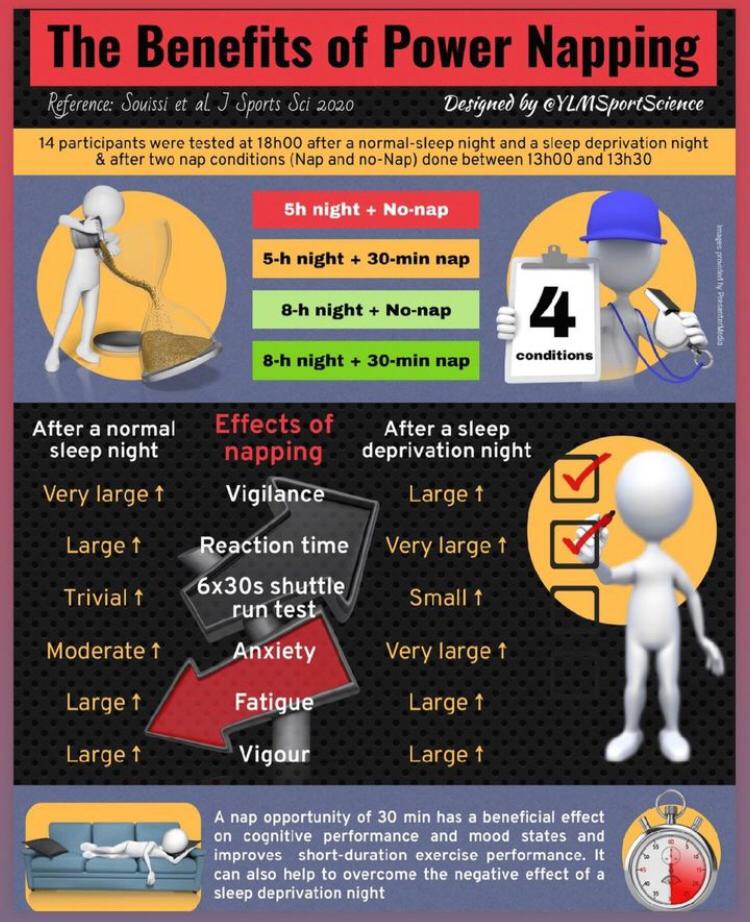For runners looking to boost performance and enhance recovery, incorporating power naps into their routine can be highly beneficial. Power napping, which typically involves taking a short nap of 10 to 30 minutes, can offer a range of advantages that complement a rigorous running regimen. Here’s why runners should consider adding power naps to their training toolkit.
Enhanced Recovery
Running, especially long distances or at high intensities, puts significant strain on the muscles and cardiovascular system. A power nap provides the body with a short period of rest, which can be particularly effective in aiding recovery. During these naps, the body has a chance to repair muscle tissues and replenish energy stores, thereby reducing the risk of overtraining and injury.
Improved Performance
One of the most notable benefits of power napping is its ability to improve performance. Studies have shown that even a brief nap can enhance cognitive functions such as reaction time, alertness, and decision-making. For runners, this means better focus and coordination during training and races, which can lead to improved times and a more enjoyable running experience.
A study conducted by Souissi et al. in the Journal of Sports Science (2020) demonstrated significant improvements in vigilance and reaction time after a 30-minute nap. Participants were tested under four different conditions:
5-hour night with no nap
5-hour night with a 30-minute nap
8-hour night with no nap
8-hour night with a 30-minute nap
The results indicated large increases in vigilance and very large improvements in reaction time after sleep deprivation nights with a nap.
Boosted Mood and Reduced Fatigue
Running demands mental endurance as much as physical stamina. Power naps have been linked to better mood regulation and reduced feelings of fatigue and stress. By taking a short nap, runners can recharge their mental batteries, which helps maintain motivation and a positive outlook toward training. This mental reset can be particularly valuable on days when a run feels daunting or after a tough workout.
The study by Souissi et al. also highlighted that after a normal sleep night, a nap still resulted in very large reductions in fatigue and significant increases in vigour. After sleep deprivation, the effects were even more pronounced, showing large improvements in both fatigue and vigour.
Enhanced Adaptability
Incorporating power naps into a running schedule can help runners adapt better to training loads. The additional rest allows for more effective physiological adaptations, such as increased muscle strength and endurance. This adaptability is crucial for runners who are progressively increasing their mileage or intensity.
Better Sleep Quality
Surprisingly, power napping can also contribute to better overall sleep quality. By taking a short nap during the day, runners can alleviate some of the daytime sleepiness that might otherwise disrupt nighttime sleep. It’s important to keep naps short to avoid interfering with regular sleep patterns.
How to Nap Effectively
To reap the benefits of power napping, runners should follow a few guidelines:
- Keep It Short: Aim for a nap lasting between 10 to 30 minutes. This duration is optimal for avoiding grogginess and maximizing alertness.
- Create a Restful Environment: Find a quiet, comfortable place to nap. Use an eye mask or earplugs if necessary to block out light and noise.
- Nap Earlier in the Day: Try to nap in the early afternoon to prevent interference with nighttime sleep.
- Listen to Your Body: Pay attention to your body’s signals. If you feel unusually tired, a power nap might be just what you need to recharge.
- Create a short ritual, such as breath exercises or doing body scan, check the mental training blog and mental training program: Level I, II III
WHAT´S NEXT STEP:
Power napping is a simple yet effective strategy that runners can use to enhance recovery, improve performance, boost mood, and support overall health. By integrating short naps into your training program you will be physically and mentally prepared to tackle the training and achieve the running goals. Integrate the mental training program, level I, II and III to Unlock your full mental potential achieving enhand relaxation, focus, mental peak and prepare yourself tot he next step.

